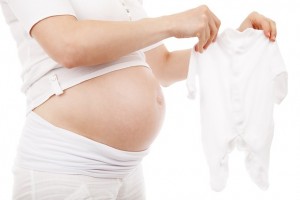 If you’re female and you enjoy the occasional glass of wine, listen up.
If you’re female and you enjoy the occasional glass of wine, listen up.
The U.S. Centers for Disease Control and Prevention recently updated their guidelines pertaining to alcohol and pregnancy, and not everyone was pleased with the results. Essentially, the CDC warns that alcohol can impact a developing baby before a woman knows she’s pregnant. In turn, it may be best to not drink at all if you could conceive.
If you’re not on birth control, think twice before sipping on your wine.
Needless to say, the CDC’s new guidelines caused a stir among women of a child-bearing age who happen to be sexually active, but not on birth control. Many people perceive the recommendations as avoiding alcohol to prevent harm to a “hypothetical” baby. However, the CDC remains firm on its recommendations.
“About half of all U.S. pregnancies are unplanned and, even if planned, most women do not know they are pregnant until they are 4-6 weeks into the pregnancy,” the CDC states on its website. “This means a woman might be drinking and exposing her developing baby to alcohol without knowing it.”
In terms of facts, the CDC also notes that 3 million U.S. women are at risk of exposing their developing babies to alcohol. Additionally, 3 out of 4 women who want to get pregnant as soon as possible report drinking alcohol.
But what’s the big deal about alcohol and conception, anyway?
The Real Dangers of Alcohol ConsumptionÂ
Fetal alcohol spectrum disorders are responsible for fueling the CDC’s advocacy for their new guidelines. The organization notes that up to one out of 20 U.S. school children may have one of these disorders. These conditions cause a slew of complications for kids, including low birth weight, brain damage, learning disabilities, and poor communication skills. As the icing on the cake, the CDC states that drinking while pregnant cost the U.S. $5.5 billion in 2010.
So what should you do with this new insight from the CDC?
Talk to your doctor about your pregnancy plans, as well as your alcohol use. If you aren’t interested in getting pregnant any time soon, it may be worth talking about your birth control options.
Only you know what’s right for your body, as well as your potentially growing family. A healthcare provider can give you all of the insight you need to maintain your well-being.
Sources
“Alcohol and Pregnancy.” CDC. Retrieved February 11, 2016.
Barrett, Carter. “CDC alcohol warning proves concerning to college women.” USA Today. February 10, 2016.
